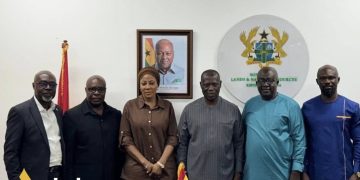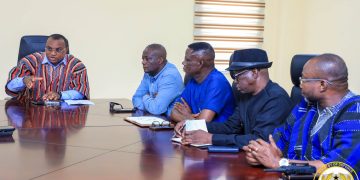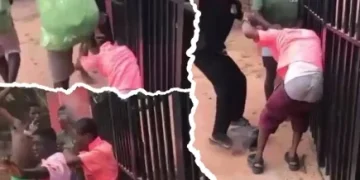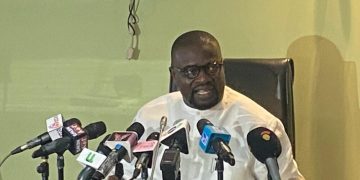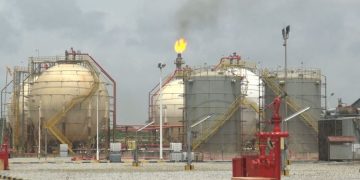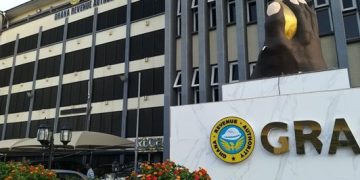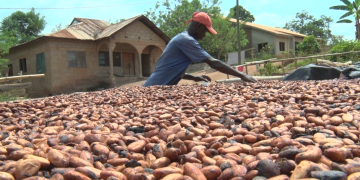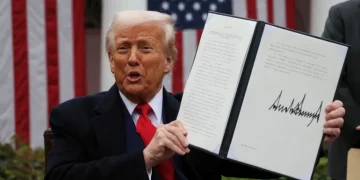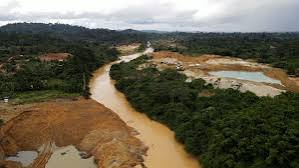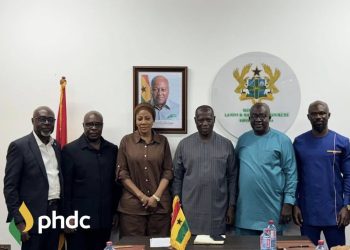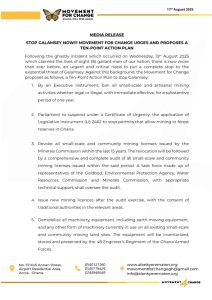
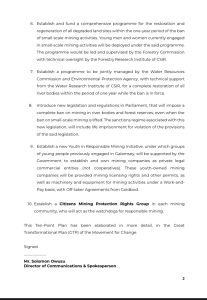 The Movement for Change, led by Alan Kwadwo Kyerematen, has called for an immediate and comprehensive one-year ban on all small-scale and artisanal mining activities legal or illegal through an Executive Instrument.
The Movement for Change, led by Alan Kwadwo Kyerematen, has called for an immediate and comprehensive one-year ban on all small-scale and artisanal mining activities legal or illegal through an Executive Instrument.
This decisive call forms part of a Ten-Point Action Plan unveiled by the group aimed at eradicating the menace of Galamsey, a term synonymous with illicit mining that has wreaked havoc on the country’s environment, water bodies, and local communities.
The announcement follows closely on the tragic helicopter crash on August 6, 2025, in the Ashanti Region, which claimed the lives of eight distinguished nationals on official duty.
The Movement for Change said the incident has underscored the urgent and critical need to tackle the “existential threat” posed by Galamsey.
In a detailed press statement released on Sunday, August 17, the group emphasized, “Following the ghastly incident which occurred on Wednesday, 13th August 2025 which claimed the lives of eight (8) gallant men of our nation, there is now more than ever before, an urgent and critical need to put a complete stop to the existential threat of Galamsey.”
The outlined below are the core elements of the Movement for Change’s comprehensive Ten-Point Action Plan:
1. Immediate One-Year Ban on Small-Scale Mining: Enforce a total ban via an Executive Instrument on all small-scale and artisanal mining operations with immediate effect for at least one year, irrespective of their legal status.
2. Suspension of Forest Reserve Mining Permits: Urge Parliament to suspend under Certificate of Urgency the enforcement of Legislative Instrument (LI) 2462, which currently permits mining activities within forest reserves nationwide.
3. Revocation and Audit of Mining Licenses: Revoke all small-scale and community mining licenses issued by the Minerals Commission over the past 15 years. This will be followed by an exhaustive audit overseen by a multi-agency task force comprising representatives from the Ghana National Bureau of Investigation (GNBI), Environmental Protection Agency (EPA), Water Resources Commission, and Minerals Commission.
4. Reissuance of Licenses with Traditional Authorities’ Consent: After the audit, new mining licenses will only be issued with the express consent of the traditional authorities from the mining areas concerned.
5. Demobilization and Safekeeping of Mining Equipment: Mandate the demobilization of all mining machinery and equipment presently in operation on small-scale mining sites. The Ghana Armed Forces’ 48 Engineer Regiment will be responsible for the orderly inventory, safekeeping, and preservation of all such equipment.
6. Land Restoration and Rehabilitation Program: Launch a government-funded program for comprehensive restoration and regeneration of degraded mining sites during the one-year ban. Youths previously engaged in small-scale mining will be recruited to help rehabilitate the land under the Forestry Commission’s leadership, supported technically by the Forestry Research Institute of the Council for Scientific and Industrial Research (CSIR).
7. Water Body Restoration Initiative: Establish a collaborative program led jointly by the Water Resources Commission and EPA, with technical support from the Water Research Institute of CSIR, aimed at rehabilitating all polluted river bodies throughout the ban period.
8. Legislative Ban on Mining in Sensitive Areas: Recommend new laws to be passed in Parliament prohibiting mining in river bodies and forest reserves permanently. Breaches of this legislation will incur severe penalties, including life imprisonment.
9. Youth Empowerment through Responsible Mining Initiative: Create a Youth in Responsible Mining Initiative empowering former Galamsey operators to form private legal mining companies. The initiative will facilitate access to licenses, permits, and equipment on a “Work-and-Pay” basis, backed by Off-taker Agreements from the Ghana National Gold Corporation (Goldbod).
10. Community Watchdog Groups: Form Citizens Mining Protection Rights Groups in mining communities nationwide to oversee and ensure responsible mining practices at the grassroots level.
The Movement’s Director of Communications and Spokesperson, Mr. Solomon Owusu, signed the statement urging swift government action to save the nation’s environment and secure its future from the devastating effects of illegal mining.
Again, they also noted that this comprehensive Ten-Point Plan is part of the Movement for Change’s broader Great Transformational Plan (GTP), which seeks sustainable solutions to one of Ghana’s most pressing development challenges.
Source: www.Kumasimail/Kwadwo Owusu


